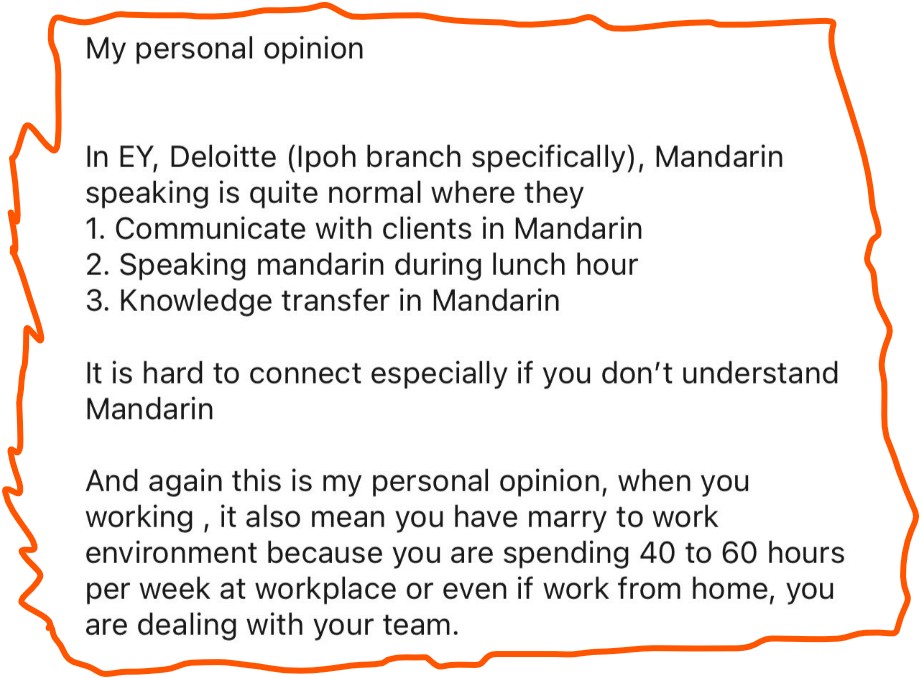“MANDARIN speakers only” type job adverts is an age-old issue but one that seems to deepen with the passage of time.
Posting on X, CEASEFIRE NOW🏳️🌈 🍉(@Sivavmn) surmised that the prevalence of Mandarin at the workplace should not be normalised as it narrows work opportunities for non-speakers. Why? It prevents non-Mandarin speakers from growth and climbing the career ladder.
I saw this comment on LinkedIn under a post about Mandarin speakers in Malaysians.
This should NOT be normalised.
This means Non-Mandarin speakers will have less opportunities to grow.MY Chinese will say Mandarin speaker is not discriminatory but this is exactly what happens pic.twitter.com/Ac1sRHc7Ua
— CEASEFIRE NOW🏳️🌈 🍉 (@Sivavmn) May 10, 2025
The poster was sharing an opinion he found attached as a comment on a LinkedIn discussion about Mandarin speakers dominating the workspace with direct reference to the (now closed) Ipoh branch of accounting firm Deloitte.
This ranged from communications with clients, transfer of knowledge to casual lunch time chit chat.
It was said that even when person works-from-home, they are bound to be affected by this language barrier as they will still need to interact with colleagues.
The poster also asked why organisations keep hiding behind the same tired excuse of needing to communicate with clients In Mandarin. Why not in Malay or English, he enquired not unreasonably.

On the same note, CEASEFIRE NOW also decried the practice of limiting jobs to “Bumiputera only” or “Mandarin speakers only”. He also urged Bumiputera to do more in pursuit of better education opportunities.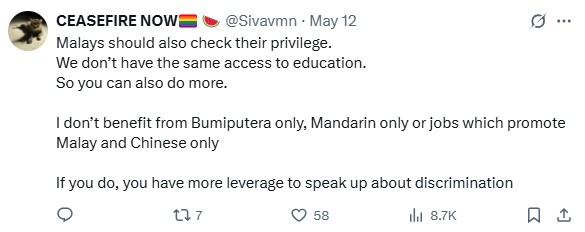
The post has been met with a flurry of responses, many which called such linguistic barriers as nothing short of discriminatory and just plain racist. It was argued that a large firm such as Deloitte could NOT be dealing with exclusively Mandarin-speaking clientele.
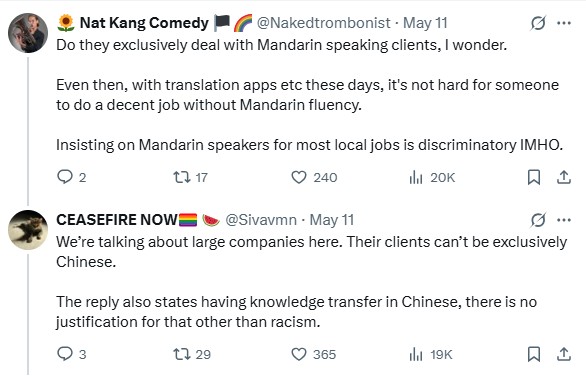
This was just a flimsy excuse for racist hiring policies, claimed one netizen.

Comparing the scenario with Singapore where English was used despite Mandarin being prevalent, the same work policy should be followed here. It was all just excuses argued another netizen.

One commenter compared his experience of working in China. He pointed out that the Malaysian crew – comprising Malay lighting and grip crew – got on superbly with their Chinese counterparts.
Given that language is not a problem in China, he reckoned that it should not be an issue here in Malaysia either.

A few netizens surmised that Mandarin should be reserved for clients from China only with English being used for all other official communications.
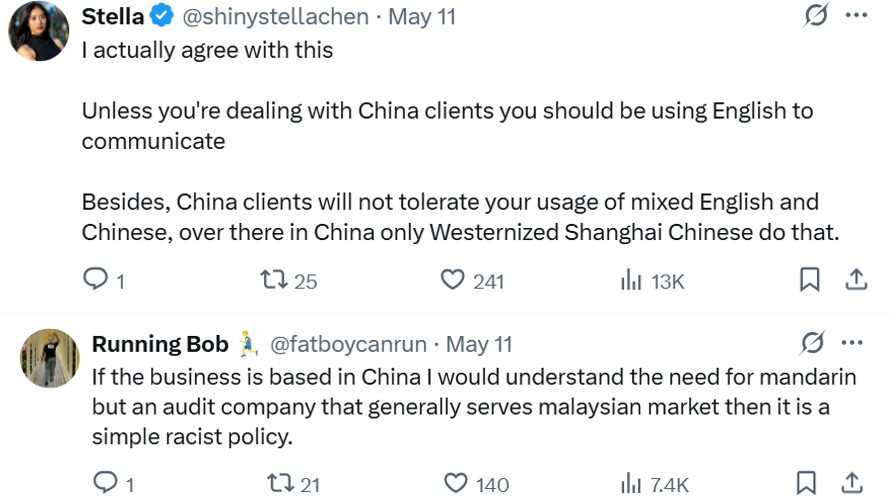
One netizen suggested that this Chinese-speaking environment led to Deloitte closing its Ipoh office with another punning it must have been a “Deloitte-ful” experience.
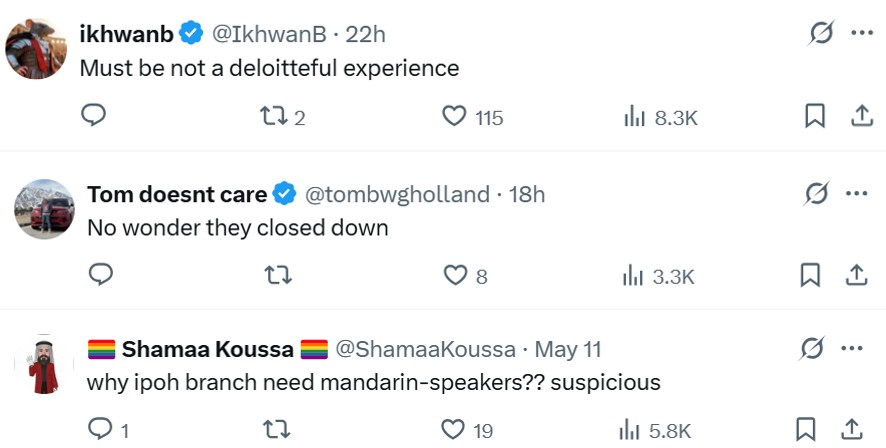
However, with the advent of AI (artificial intelligence) and various other digital tools, one commenter wondered if language is still a barrier.

A few non-Mandarin speakers simply asked others to learn to adapt. One even argued that a person can dictate the lingua franca when he or she owns the company.
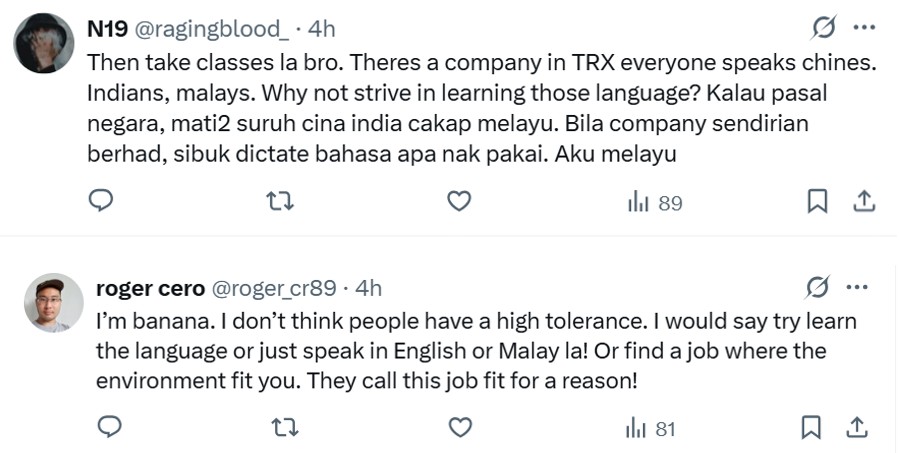
One commenter argued that this could he the consequence of having closed door policies in other sectors, namely the education system.

The issue boils down to that political hot potato that is vernacular education. Nothing wrong with wanting future generations to have strong command of their mother tongues but it becomes a problem when it is later distilled into racist, closed-door work environments.
This is surely a problem with no end in sight – May 13, 2025


